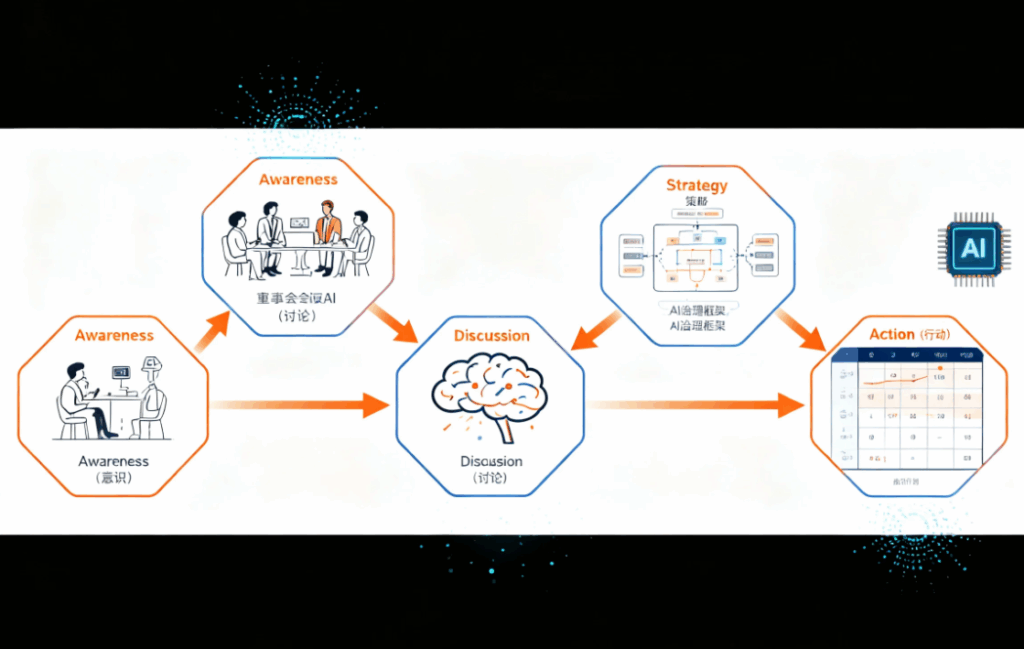In just six months, corporate boards have made significant strides in preparing for artificial intelligence (AI). According to the latest edition of Governance of AI: A Critical Imperative for Today’s Boards, the number of organizations saying they are unprepared to deploy AI has dropped from 41% last October to 31% today. Progress is being made—but the work is far from complete.
From Awareness to Agenda
AI is appearing more often on board agendas, yet nearly one-third of directors admit their boards still devote too little time to the topic. This misalignment reflects a broader tension: organizations often move at the pace of internal change, while technology moves at breakneck speed. Boards that want to provide effective oversight need to elevate AI on the agenda now, not later.

A Call for Proactive Engagement
The latest survey shows nearly 40% of respondents are experimenting with AI—up from about one-third previously. Yet more than half believe their organizations should be moving faster. For boards, this means playing a hands-on role: not only overseeing management’s AI strategy but also pressing for clear processes around risk identification, monitoring, and reporting.
The single most important factor? Strong communication between boards and management. Directors who actively engage with executive leaders are better positioned to align strategy with execution. Encouragingly, only 8% of respondents reported no board-management engagement on AI, down from 13% last year.
The Knowledge Gap
Still, oversight requires fluency. Two-thirds of board members and executives admit to having limited-to-no knowledge of AI. While about half of surveyed organizations now provide foundational AI education to their boards, the other half are leaving directors underprepared.
Boards must raise their AI IQ. That means more than attending workshops—it means experimenting with AI tools, tracking regulatory developments, and understanding societal implications. Directors cannot rely solely on management or outside consultants; they must become active learners themselves.

Learning From the Outside In
At the same time, external perspectives have value. Boards may benefit from adding directors with AI expertise or inviting specialists for targeted sessions. Fresh voices can help boards understand what’s possible, frame governance questions, and surface risks they may not otherwise see. Just as importantly, these perspectives can help boards weigh broader considerations: the ethical use of AI, its impact on employees, and the company’s role in ensuring safe, responsible innovation.
Building Resilient, AI-Savvy Boards
AI isn’t a passing trend—it’s a transformative force reshaping industries and societies. To govern effectively, boards must:
- Accelerate adoption to keep pace with technological change.
- Strengthen communication with management to ensure strategy translates into outcomes.
- Invest in education to build AI fluency and informed oversight.
- Leverage external expertise to challenge assumptions and expand perspectives.
By committing to these steps, boards can move beyond surface-level awareness and position their organizations to lead with confidence in the age of AI.















